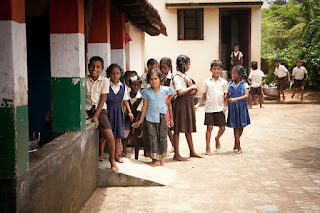A Global Perspective on the use of local languages in the classroom: ELNI Webinar by the Tata Trust
Learning new things from a webinar can be quite enriching. Presenting at a webinar is even a richer experience: Recently I helped design and execute a webinar for the Early Learning Network of India (ELNI) hosted by Tata Trust. Good to talk about the reasons for and the principles for using the local languages in the classroom! The Early Learning Network of India (ELNI) invited education specialists to provide a global perspective in integrating local languages into early education for a webinar. The ELNI, supported by Tata Trusts, regularly hosts webinars focused on early literacy and the use of local languages in classrooms. These sessions bring together educators, researchers, and policymakers to share international and national insights on multilingual education. The ELNI is led by Dr. Shailaja Menon, and promotes early literacy through teacher development and multilingual, research-informed practices in collaboration with institutions and NGOs. During this presentation the topics ...
